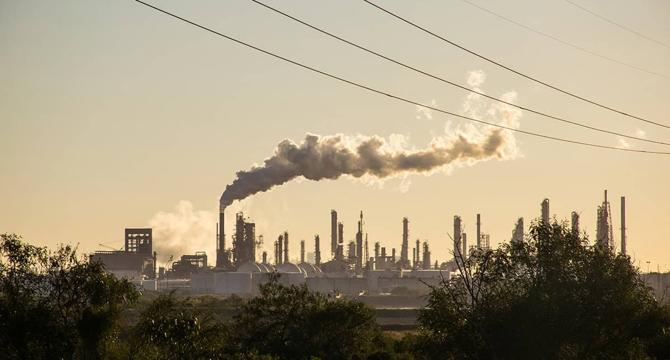Physicsworld
1M
167

Image Credit: Physicsworld
UK plans £22bn splurge on carbon capture and storage
- The UK government has announced it will spend nearly £22 billion on carbon capture and storage (CCS) in the next 25 years. Government ministers claim it will make the UK a global leader in CCS and hydrogen production and is expected to attract £8bn in private investment. However, critics have raised concerns about the technology including its feasibility at scale, commercial viability and potential to extend fossil fuel use rather than expanding renewable energy and other low-carbon technologies. At present, there are no commercial CCS facilities in the UK.
- Projects in two industrial clusters, HyNet in Merseyside and the East Coast Cluster in Teesside, will capture CO2 from hydrogen plants, a waste incinerator, a gas-fired power station and a cement works and transport it down pipes to offshore storage sites. The strategy is expected to create 4,000 jobs, with the industry supporting 50,000 roles. The new investment in CCS follows advice from the independent Climate Change Committee and endorsements CCS as critical for decarbonisation, particularly in heavy industry.
- According to the International Energy Agency (IEA), globally there are around 45 commercial facilities that capture about 50 million tonnes of carbon annually, roughly 0.14% of global emissions, and up to 435 million tonnes of carbon could be captured every year by 2030, depending on the progress of more than 700 announced CCS projects. The UK government also plans to use CCS to produce so-called “blue” hydrogen by capturing and storing the by-products of hydrogen production.
- Critics have raised concerns that blue hydrogen continues reliance on fossil fuels and risks leaks along the natural gas supply chain. The Institute for Energy Economics and Financial Analysis (IEEFA) warns that money earmarked for CCS would be better spent on proven decarbonisation technologies such as buildings insulation, renewable power, heat pumps and electric vehicles. It added that the UK’s plans will make it more reliant on fossil gas imports and send the wrong signal internationally about the need to stop expanding fossil fuel infrastructure.
- There are also questions about progress on the European Union's target to store 50 million tonnes of carbon annually by 2030. There are doubts over delays to several EU CCS projects and it has been reported that a pipeline connecting Germany’s Rhine-Ruhr industrial heartland to a Dutch undersea carbon storage project will not come online until at least 2032.
- While some climate scientists say the money is vital to decarbonise heavy industry, others advise CCS cannot be the sole answer and renewable and low-carbon technologies are also needed. It also needs to be ensured the technology is profitable and financially viable for investors.
- Jessica Jewell, an energy expert at Chalmers University in Sweden, believes that subsidies like the UK government's plan could boost CCS profitability and lead to as significant as a 600-gigatonne reduction in carbon emissions.
- Marcelle McManus, director of the Centre for Sustainable Energy Systems at the University of Bath, welcomes the UK investment, saying decarbonising major industries is challenging and will benefit from CCS. However, McManus also emphasises it is vital to create technologies and pathways for a defossilised future and to expand low-carbon alternatives like wind, solar, and electric vehicles.
- The new investment in CCS comes as countries attempt to meet the goals of the Paris climate agreement of limiting the global average temperature increase to less than two degrees Celsius above pre-industrial levels.
- However, there is growing concern that the promised carbon cuts are insufficient to prevent a climate crisis. Last week, the United Nations said countries' climate plans need to be almost three times more ambitious to prevent catastrophic warming.
Read Full Article
10 Likes
For uninterrupted reading, download the app